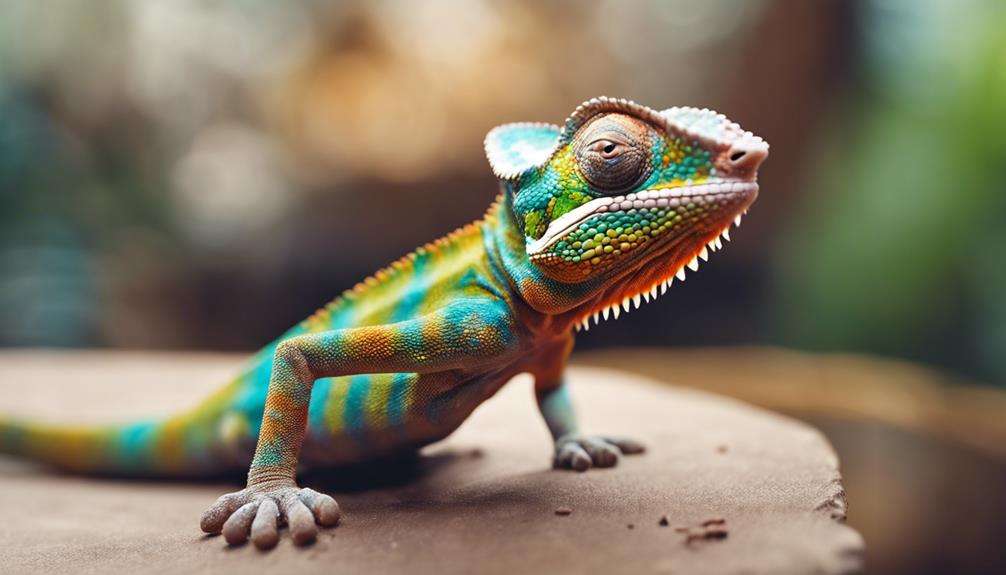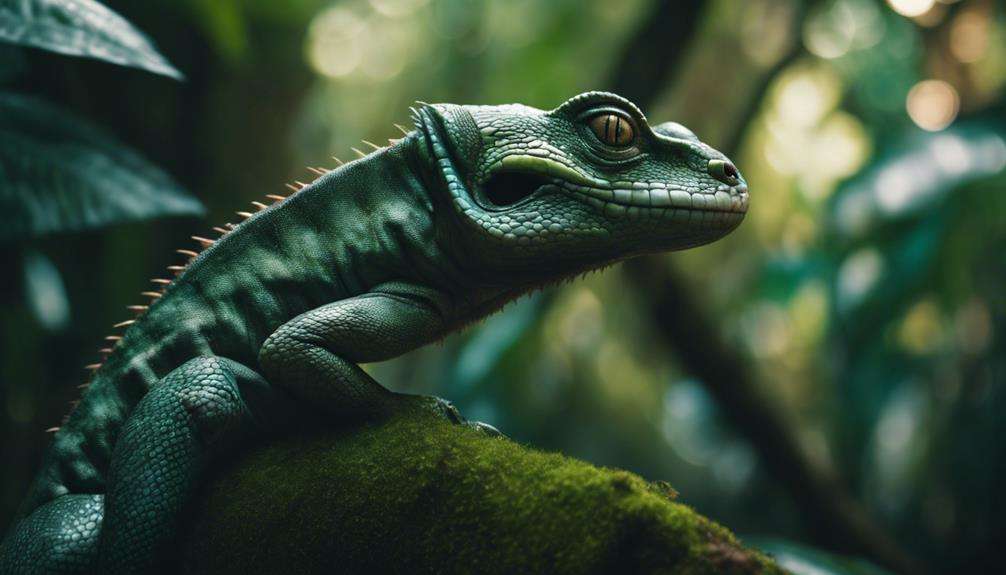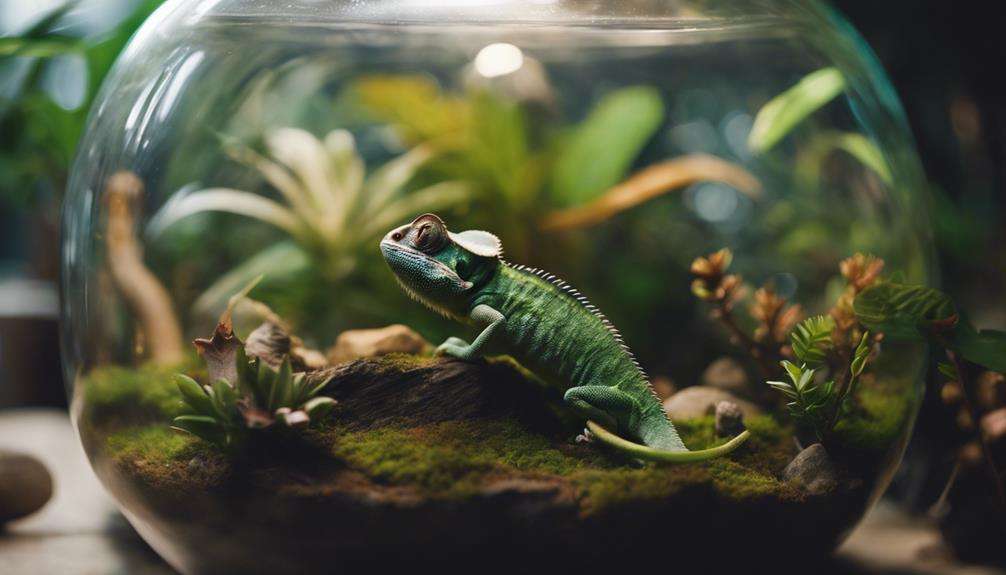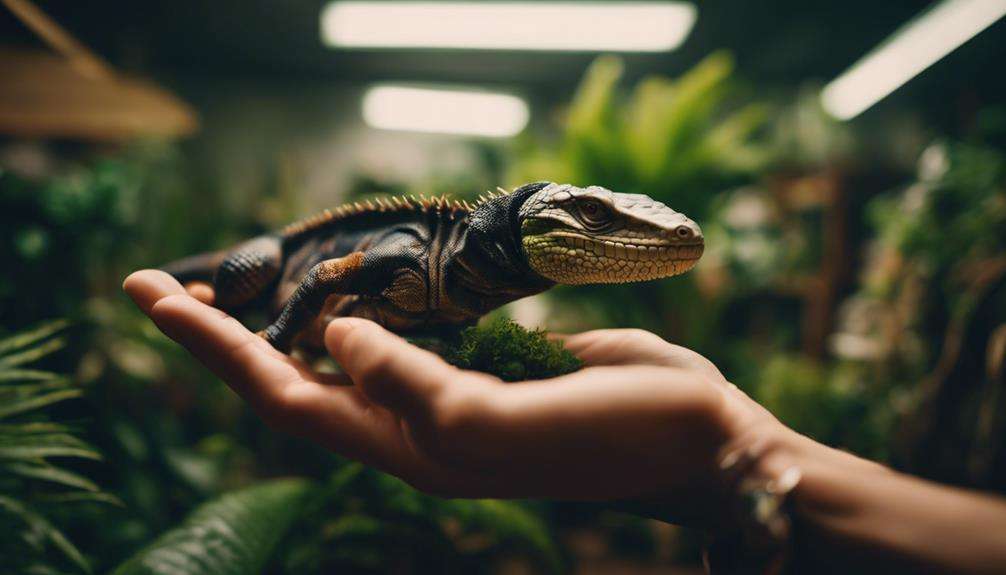If you've ever considered bringing an uncommon reptile into your home, you might be surprised to learn about the intricate web of regulations governing their ownership.
From permits to specialized care requirements, navigating the legal landscape of exotic pet ownership can be both challenging and rewarding.
Understanding these regulations is not only crucial for compliance but also for ensuring the well-being of your unique reptilian companion.
Stay tuned to discover the essential aspects of owning uncommon reptiles as pets and how to navigate the legal framework surrounding these fascinating creatures.
Key Takeaways
- Compliance with state laws and permit regulations is vital for owning rare reptiles responsibly.
- Understanding and adhering to licensing requirements ensure legal ownership of uncommon reptiles.
- Renew permits timely to avoid fines, revocation, or confiscation of reptiles.
- Proper enclosure setup and expertise in reptile care are essential for the well-being of uncommon reptiles.
Legal Framework for Rare Reptile Ownership
If you're considering owning rare reptiles as pets, it's essential to familiarize yourself with the legal framework governing their ownership. Some states mandate permits or licenses for keeping exotic animals like rare reptiles to ensure they receive proper care.
State laws often include specific regulations concerning the ownership of uncommon reptiles, such as restrictions on certain species. To avoid penalties and guarantee the well-being of these unique pets, it's crucial to understand and comply with the legal requirements set forth by your state.
Consulting with a veterinarian who specializes in exotic animal care can provide valuable guidance on navigating the complexities of owning rare reptiles within the bounds of the law. By being well-informed about the legal landscape surrounding rare reptile ownership, you can ensure a safe and fulfilling experience for both you and your exotic companions.
Licensing Requirements for Exotic Reptiles
To ensure compliance with legal regulations and provide optimal care for your rare reptile companions, understanding the specific licensing requirements for exotic reptiles in your state is imperative. Licensing requirements for exotic reptiles vary across states, with some mandating permits for ownership.
If you intend to keep restricted species like venomous snakes or large constrictors, specific permits may be necessary. Demonstrating suitable conditions for animal care might also be a prerequisite for obtaining a license.
States impose strict regulations on owning certain exotic reptiles to safeguard public safety and animal welfare. Therefore, researching and adhering to the licensing requirements for uncommon reptile ownership is crucial to steer clear of potential legal issues. Ensuring that you meet all the necessary criteria for licensing won't only keep you on the right side of the law but also help guarantee the well-being of your exotic reptiles and those around you.
Stay informed, comply, and enjoy your unique pets responsibly.
Permits for Uncommon Reptile Possession
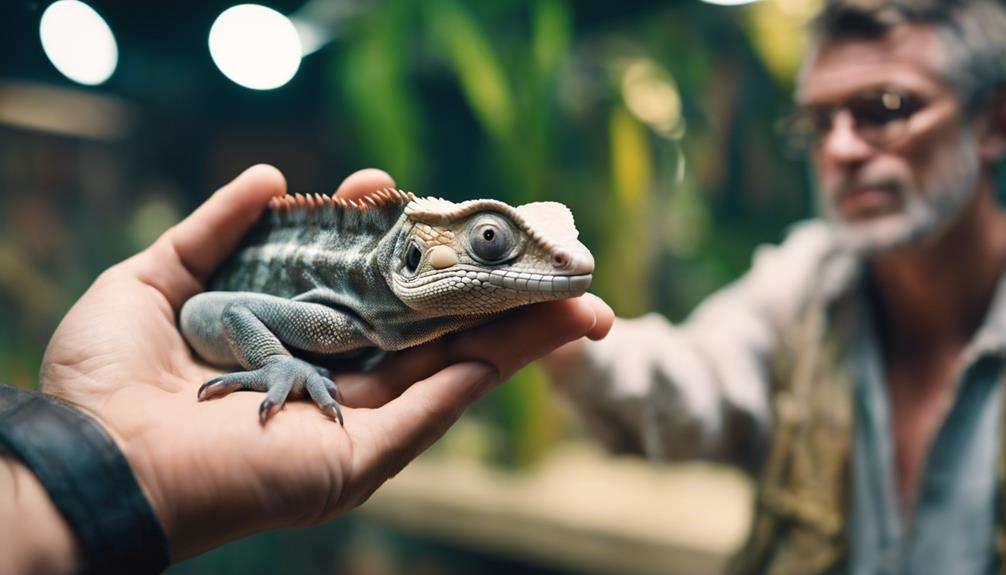
When considering owning uncommon reptiles like venomous snakes or endangered species, be aware that permits are crucial in many states to ensure responsible ownership. Specific permits may be required for species such as large constrictors, monitor lizards, or crocodilians.
The application process typically involves demonstrating your knowledge and capabilities in caring for these unique reptiles.
Permit Application Process
Navigating the permit application process for owning uncommon reptiles involves providing detailed information about the reptile's care requirements and meeting specific criteria set by state regulations. To apply for a permit, you must be well-versed in the reptile's needs, including housing, feeding, and healthcare.
States often require proof of experience in caring for exotic pets and compliance with permit requirements. The application will undergo review by state wildlife agencies or departments overseeing exotic animal ownership.
Species-Specific Restrictions
Understanding species-specific restrictions is crucial when applying for permits to possess uncommon reptiles, ensuring responsible ownership and compliance with state regulations. Some states mandate permits for exotic animals like venomous snakes, large constrictors, or endangered species to guarantee proper care.
Regulations vary by species, often requiring specialized permits for possession. These permit requirements serve to safeguard both the uncommon reptiles and the public, focusing on safe handling and containment practices. Comprehending and adhering to these regulations is paramount for legally owning and caring for uncommon reptiles as pets.
Renewal Requirements and Fees
Curious about the renewal requirements and fees for permits to possess uncommon reptiles as pets? When it comes to owning these unique pets, renewal requirements can entail annual applications or periodic inspections.
The fees associated with permits for uncommon reptiles vary across states, ranging from nominal amounts to substantial costs. Some states may mandate proof of liability insurance during the permit renewal process.
Ensuring compliance with renewal deadlines is essential to maintain legality and adhere to regulations. Failure to renew permits for possessing uncommon reptiles can lead to consequences such as fines, revocation of ownership rights, or even confiscation of the reptiles.
Stay informed about the specific regulations in your state to avoid any issues with your uncommon reptile ownership.
Restrictions on Owning Rare Reptiles

To comply with state regulations and ensure the well-being of both the animals and the community, understanding the restrictions on owning rare reptiles is crucial. When it comes to rare reptiles, there are specific regulations in place to safeguard public safety and conservation efforts.
- Public Safety: Restrictions on owning rare reptiles are primarily in place to protect the public from potential harm or dangers associated with these exotic creatures.
- Conservation: Ownership restrictions aim to prevent the illegal trade of rare reptiles, helping to conserve their populations in the wild.
- Permits and Licenses: Some states may require permits or licenses for individuals looking to own uncommon reptiles, ensuring responsible ownership.
- Local Ordinances: Local regulations may further limit the ownership of rare reptiles in certain areas, reflecting the diverse needs and concerns of different communities.
Exotic Reptile Ownership Laws Overview
When considering exotic reptile ownership laws, it's essential to be aware of the specific regulations in your state to ensure legal compliance and responsible pet ownership.
Various states have implemented ownership laws concerning exotic reptiles, including the requirement for permits or licenses for private possession of certain species. In some regions, comprehensive bans exist on the private ownership of wild or exotic reptiles to safeguard both the animals and the public.
Owners looking to keep exotic reptiles may need to fulfill specific conditions, such as meeting insurance requirements, to legally possess these creatures. Additionally, conservation efforts play a vital role in regulating exotic reptile ownership, aiming to prevent exploitation and protect biodiversity.
Compliance Guidelines for Rare Reptile Keepers
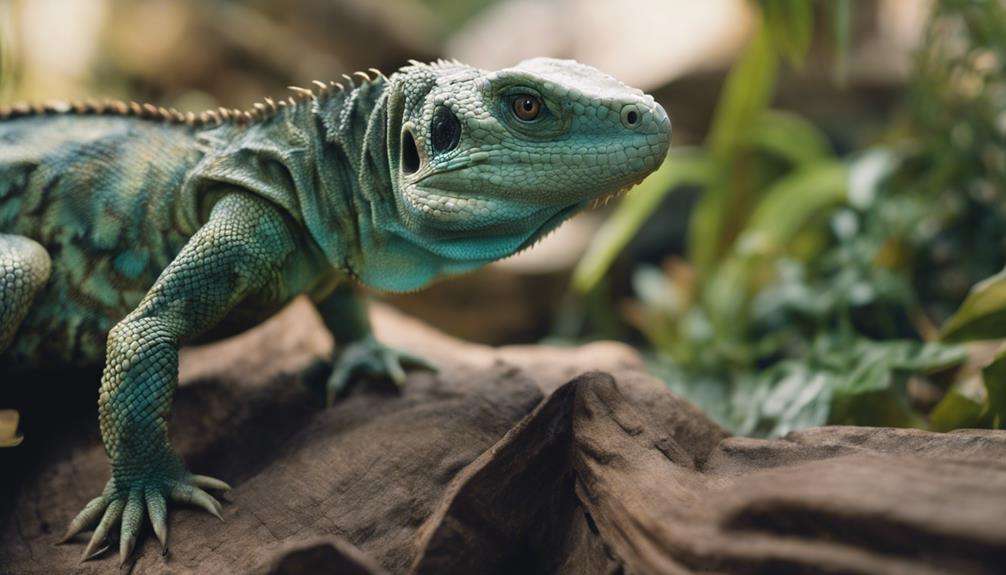
Ensure you have the necessary permits and adhere to enclosure specifications for legal ownership of rare reptiles.
Familiarize yourself with the specific guidelines governing the care and husbandry of uncommon reptiles to meet their unique needs.
Regularly consulting with an experienced veterinarian and staying updated on exotic pet ownership laws will help you maintain compliance and provide the best possible care for your rare reptile.
Permit Requirements for Rare Reptiles
For rare reptile enthusiasts looking to legally own uncommon reptile species, understanding and complying with permit requirements is crucial. To ensure you meet the necessary criteria, consider the following:
- Permit Requirements: Research the specific permit requirements for rare reptiles in your state.
- Housing and Care: Be prepared to demonstrate expertise in reptile care and provide suitable enclosures.
- Compliance Matters: Failure to comply with permit regulations can lead to fines, confiscation of the reptile, or legal action.
- Legal Consequences: Avoid potential legal consequences by adhering to all permit regulations and guidelines diligently.
Enclosure Specifications for Legality
To maintain legal compliance as a rare reptile owner, understanding and implementing proper enclosure specifications is paramount. Enclosures for rare reptiles must adhere to specific size requirements to ensure the animal's comfort and safety. It's crucial to comply with these specifications to prevent escapes and potential harm to the reptile or others.
Rare reptile enclosures should also include appropriate heating, lighting, and substrate to replicate their natural habitat effectively. Some states may have regulations on enclosure materials to safeguard the reptile's well-being and prevent harm.
Regular maintenance of the enclosure is necessary to uphold a healthy environment for the rare reptile, ensuring its well-being and longevity. Compliance with these enclosure guidelines is essential for responsible rare reptile ownership.
Frequently Asked Questions
What Reptiles Are Illegal to Own in the Us?
Certain snake species, lizard breeds, turtle varieties, crocodile types, and alligator restrictions may be illegal to own in the US without proper permits. Chameleon, gecko, iguana, skink, and salamander ownership could also face specific regulations.
What States Is It Legal to Own Exotic Pets?
In some states, exotic pet laws permit ownership of uncommon reptiles. State regulations on exotic pet ownership vary, with legal restrictions like permits and licenses enforced to control the exotic pet trade. Stay informed about reptile restrictions.
Is It Okay to Have Exotic Animals as Pets?
It's important to consider ethical concerns, animal welfare, conservation efforts, public safety, and environmental impact when deciding if it's okay to have exotic animals as pets. Legal restrictions vary, but responsible ownership, behavioral considerations, and habitat requirements are crucial.
Why Are Exotic Animals Illegal?
Exotic animals are illegal due to conservation impact, public safety risks, and animal welfare concerns. Disease transmission, invasive species introduction, illegal trade, and lack of proper care contribute to environmental disruption, escape risks, and legal complications.
Conclusion
Now that you have familiarized yourself with the regulations surrounding uncommon reptile ownership, remember to always prioritize the well-being of your exotic pet.
By staying informed and following the necessary guidelines, you can ensure a safe and fulfilling experience as a rare reptile owner.
Remember, responsible pet ownership is key to creating a harmonious environment for both you and your unique reptilian companion.

